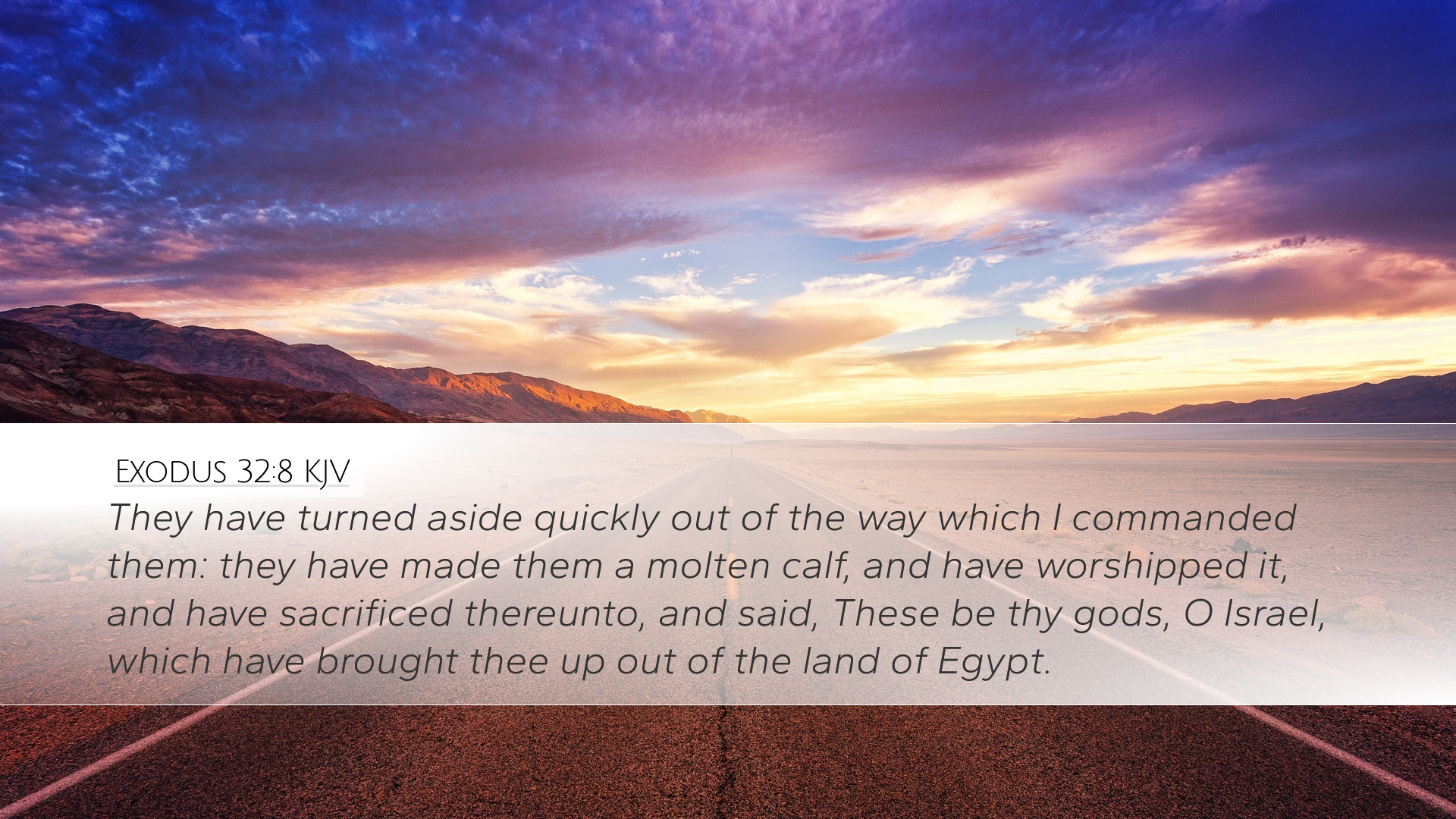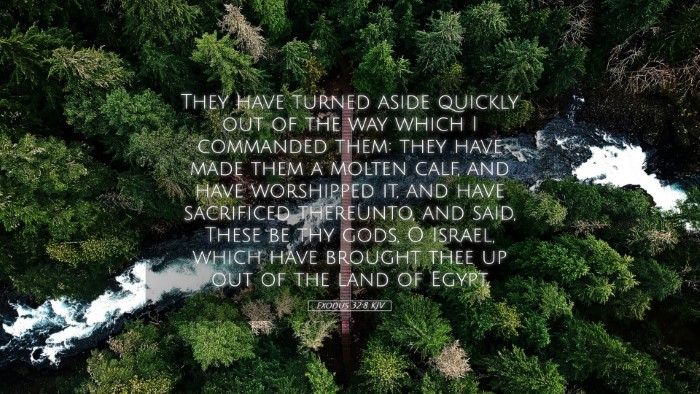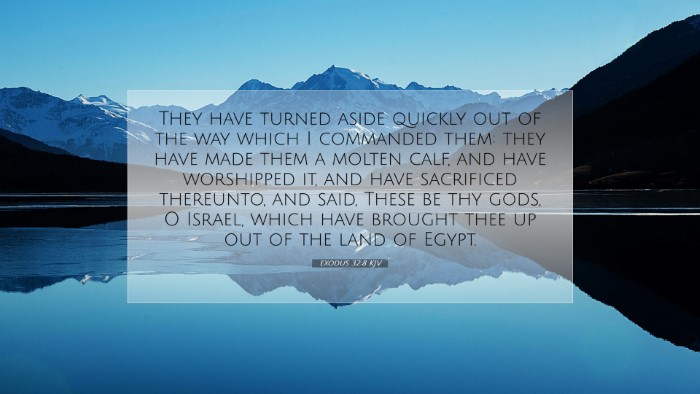Commentary on Exodus 32:8
Verse Context: Exodus 32:8 reads, "They have turned aside quickly out of the way which I commanded them; they have made them a molten calf, and have worshipped it, and have sacrificed thereunto, and said, These be thy gods, O Israel, which brought thee up out of the land of Egypt." This verse occurs in the narrative of Israel's rebellion during Moses' absence on Mount Sinai, illustrating the theme of idolatry and the heart's propensity to stray from God.
Introduction
The rebellion of the Israelites as depicted in this text provides critical insights into human nature, the consequences of idolatry, and God's response to sin. Commentators such as Matthew Henry, Albert Barnes, and Adam Clarke elucidate the theological implications and moral lessons derived from this passage, making it essential for pastors, students, theologians, and scholars to contemplate the depth of its meaning.
Summary of Key Insights
- Human Impulsiveness: Matthew Henry emphasizes how quickly the Israelites turned away from God's commandments. Their impulsiveness reflects a broader human tendency to abandon faith in times of uncertainty.
- Idolatry's Nature: Albert Barnes points out that the creation of the golden calf symbolizes the deep-seated craving for tangible representations of divine power. This incursion into idolatry represents not only disobedience but a fundamental misunderstanding of God's nature.
- The Effects of Leader Absence: Adam Clarke notes that Moses' prolonged absence led the people to seek leadership in their own ways, ultimately leading them into sin. This underlines the importance of spiritual leadership and the consequences of its absence.
- God's Justice and Mercy: The verse also calls attention to God’s immediate response to sin. While He is just and will hold the people accountable, He is also merciful, willing to intercede on behalf of those who repent.
Dive Deeper: Detailed Commentary
Human Nature and Sin
Henry observes that the Israelites’ actions reflect the natural corruption of human beings. In the face of prolonged divine silence (Moses' absence), they exhibited a profound weakness in faith. This behavior is persistent throughout human history—how often do we falter when immediate signs of God’s presence seem absent?
Understanding Idolatry
Barnes elaborates on the concept of idolatry present in Exodus 32:8. The molten calf was not merely an object of worship but symbolized a regression to pagan practices reminiscent of their time in Egypt. This act of rebellion teaches us that idolatry is not always about foreign Gods; often, it manifests as an improper affection for created things over the Creator.
Modern Applications
In contemporary settings, the caution against idolatry is still relevant. Anything that takes precedence over God—be it career, relationships, or even church—can become an idol, drawing attention away from true worship.
Leadership and Community Behavior
Clarke draws attention to the role of leadership in shaping community faithfulness. The Israelites essentially created their own gods due to the vacuum left by Moses. In this way, it highlights the necessity of godly leadership in the church today. Leaders ought to guide their communities toward faith rather than allowing distractions to lead them away.
The Dual Nature of God: Justice and Mercy
Lastly, this verse illustrates the duality of God’s character as Judge and Redeemer. Although judgment is warranted for the people's rebellion, God's promises and merciful heart are evident through His willingness to maintain a relationship with His people, underscoring the transformative power of repentance.
Theological Reflections
- The Struggle of Faith: The sin of Israel documents a struggle that is still familiar to Christians today—the tension between the seen (the calf) and the unseen (the true God).
- Nature of Worship: Worship must be grounded in truth; anything less detracts from the glory of God and misrepresents His nature.
- Divine Patience: God's patience is a recurring theme, as He patiently waits for His people to return to Him, providing opportunities for redemption.
Conclusion
In Exodus 32:8, we witness a pivotal moment in Israel's history, replete with warnings for the present-day church and individual believers. The insights provided by Matthew Henry, Albert Barnes, and Adam Clarke resonate deeply as they highlight the depth of human sin and the grace of God. As we study this passage, let us reflect not just on Israel's mistakes, but on our own hearts, striving for a genuine relationship with the God who leads us out of our own Egypts.


